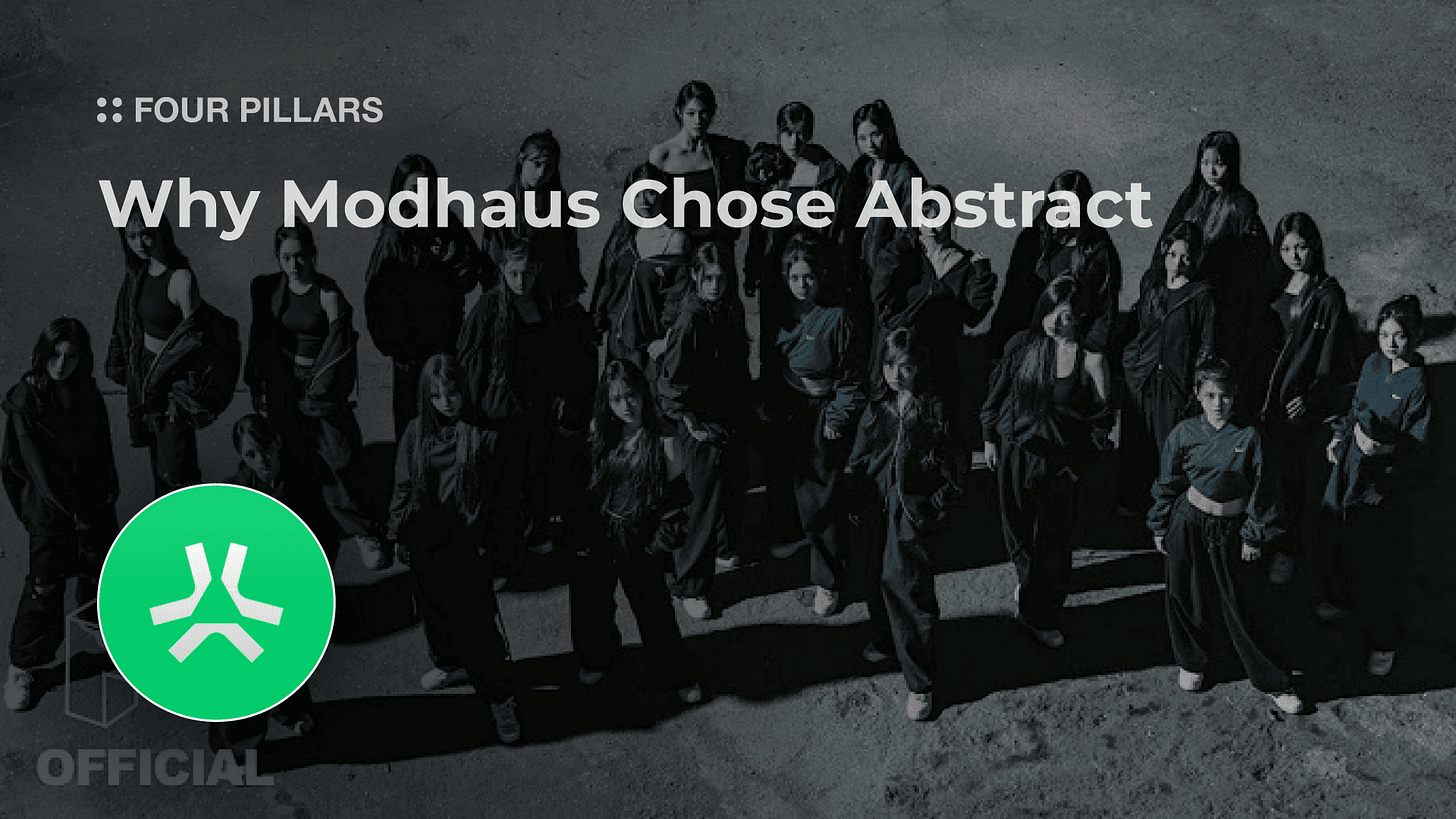Unpacking Web3's Next Frontier: Consumer, Verifiability, and AI Agent [FP Weekly 28]
[Issue] Why Modhaus Choose Abstract
Written by JW, Ponyo
Abstract is a consumer-centric Layer 2 blockchain that abstracts away technical complexities to deliver seamless user experiences. Its unique ecosystem is built around a comprehensive portal, XP system, and badges designed specifically for everyday users.
Modhaus pioneered the "Open Architecture Entertainment" model in K-Pop, using blockchain to give fans direct input into their favorite artists' activities. Their platform has already generated over 8.8 million NFT-based photocards and attracted a community of 270,000+ active app users.
Modhaus will benefit from Abstract's zkSync and Celestia-based infrastructure through improved technical stability, scalability, and streamlined user onboarding via email authentication. Meanwhile, Abstract gains access to K-Pop's highly engaged and loyal fanbase, creating stronger network effects across its ecosystem of gaming, entertainment, and social applications.
This collaboration demonstrates how Abstract can serve as a gateway for Web2 companies to adopt blockchain technology without overhauling their existing business models—fulfilling its vision of bringing mainstream services into the blockchain ecosystem through consumer-oriented innovation.
[Issue] Verify to Trust: Different Approaches of EigenCloud & Boundless
Written by c4lvin
Verification can be considered a human instinct, but as the complexity of digital computing environments increases, areas that users cannot directly verify are expanding. Accordingly, academia and industry have been steadily conducting research on "verifiable computing."
EigenCloud and Boundless are representative projects currently leading with the motto of "verifiable computing." While these two projects may seem to be conflicting due to their seemingly common goals, they actually target verifiability in different domains.
EigenCloud demonstrates strength in areas requiring intersubjective judgment based on economic security, while Boundless excels in areas requiring verification of objective and deterministic computations based on zero-knowledge proofs. Therefore, these two projects are likely to operate complementarily as verifiable computing expands in the future.
[Issue] Virtuals Protocol ACP: The Future of Agentic Division of Labour
Written by Eren
Recent studies have shown that agents trained on real game data can engage in economic interactions similar to real-world behavior, including language-based negotiation, trading, and price discovery. AI agents are now entering a phase where they collaborate and exchange value in meaningful ways. Virtuals Protocol introduces ACP (Agent Commerce Protocol) as the infrastructure to support this.
ACP is a crypto-native multi-agent framework designed to enable commerce interactions and permissionless transactions between AI agents. It automates processes like discovery, negotiation, evaluation, and settlement entirely on-chain, and is built to be open and interoperable across different chains, platforms, and agentic frameworks.
ACP was developed in response to the limitations observed during the AI agent hype cycle of late 2024. To standout amongst the sea of AI agents, many agents to do everything but their efforts paled in comparison to their ambitions where their agents failed to reach sufficient performance. In response to this, ACP focuses on allowing these agents to collaborate and complement each other's agentic capabilities, whereby the agents could hyper-specialize in their respective focus capabilities while relying on others for their current gaps; ultimately resulting in higher overall production of outputs/outcomes.
Just as the rise of conveyor belts marked a shift in production from individual artisans to coordinated systems, multi-agent cooperation now demands protocols that connect and orchestrate agents into a unified workflow. ACP distinguishes itself as an infrastructure layer that goes beyond communication, enabling economic coordination among agents.
Division of labor historically unlocked mass production and led to large-scale consumer markets. In a similar manner but hyper-scaled, multi agent systems compounds this market potential given that they're unshackled from human biology constraints, effectively working tirelessly 24/7. ACP aims to realize this potential by integrating into various service domains and creating new use cases that prove its real-world value.
This Week’s Research
[Issues]
[Comments]




